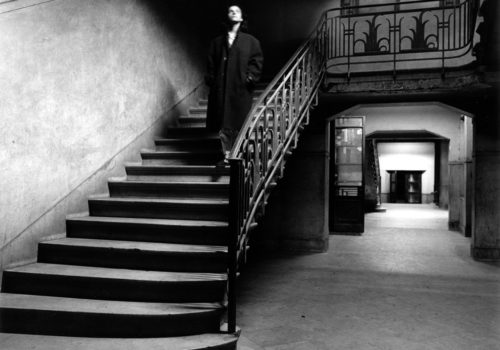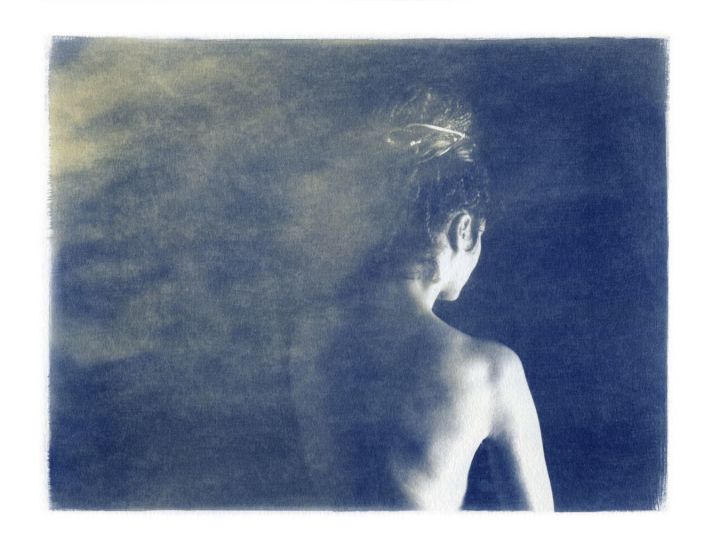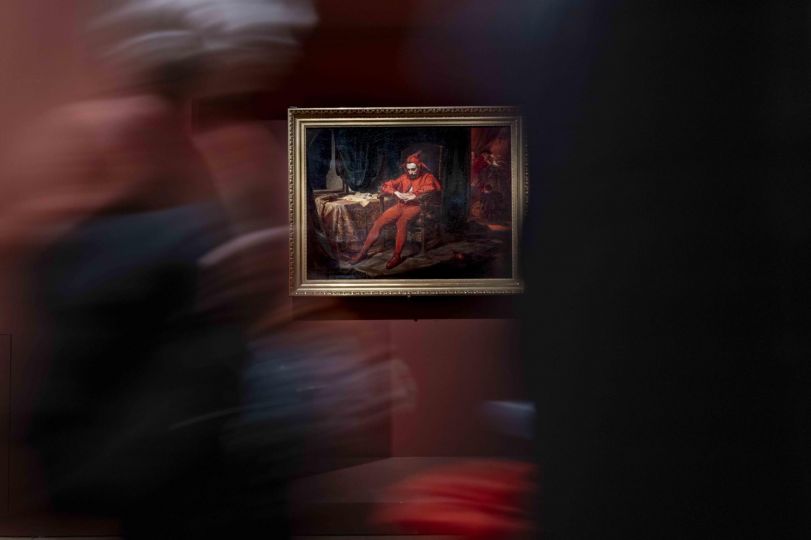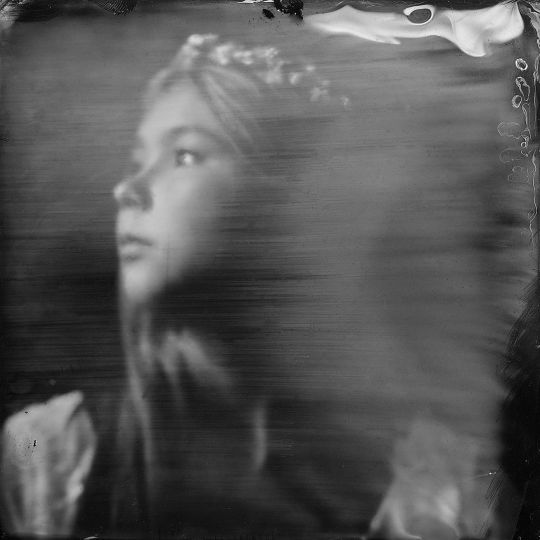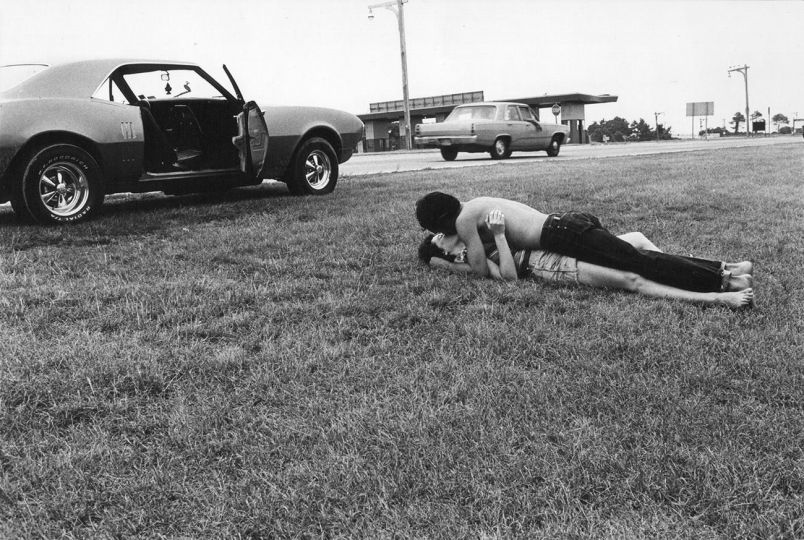In 1989, Fouad El Khoury was awarded the Prix Médicis “Hors Les Murs” and set out to follow in the footsteps of Gustave Flaubert and Maxime Du Camp. “Flaubert and Du Camp slept at the foot of the pyramids, climbing onto their horses in the morning and collapsing at night around the fire, half-buried in sand where today there are buildings, and I rented an apartment on the fifth floor looking out at the minaret,” writes El Khoury in Suite Egyptienne, published by Actes Sud in 1997, the year he co-founded the Fondation Arabe pour l’Image in Beirut. In these landscapes where time vanishes and “color gives way to space,” El Khoury followed the footprints of his predecessor, dissipated by the rebellious sand.
The visual journal is an account of El Khoury’s tribulations, daydreams and disappointment at not finding intact the Egypt of Flaubert, all in the company of his wife, Nada. She turns out to be the heroine of this journey, where endpoints replace cardinal points, and the grain of the photographs, blurred by memory, mixes with the grains of sand. For El Khoury she embodies Kuchuk Hanem, the courtesan and dancer Flaubert encountered one humid and nostalgic evening: “I sucked her furiously, her body was covered with sweat, she was tired after dancing, she was cold,” he wrote. “I covered her with my fur pelisse, and she fell asleep … As for me, I scarcely shut my eyes. My night was one long, infinitely intense reverie. That was why I stayed. Watching that beautiful creature asleep (she snored, her head against my arm;…), I thought of my nights in Paris brothels — a whole series of old memories came back — and I thought of her, of her dance, of her voice as she sang songs that were for me without meaning and even without distinguishable words.” El Khoury finds his own Kuchuk Hanem a century and a half later.
Echoing this poetic suite is the symphonic suite of “Révolution,” immense photographs depicting, in near life-size, the tombs of the pharaohs and the monumental landscapes that house them. They are a metaphor for the immutable cycles of History, of the destructive forces excited by power. More than 3,000 years ago, Egypt witnessed its first revolution with the death of Pepi II after 90 years of rule over the kingdom. His local emissaries claimed their right to eternity. The resonance with the 2011 Revolution rings out.
EXHIBITION
Suite égyptienne by Fouad El Khoury
Through March 6th 2015
Galerie Tanit Beyrouth
East Village Building
Ground Floor
Armenia Street
Mar Mikhael
Beirut
Lebanon

